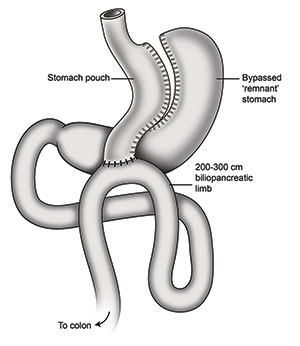1 Week after surgery
You may still have some abdominal discomfort which can be caused by your wound or the reduced size of your stomach. You can take painkillers for this if necessary. You should be able to return to work. However, you should avoid doing any heavy lifting for the next six weeks. Make sure that you continue to walk for 30 minutes each day, as well as do your breathing exercises 3 times a day using your inspirometer. Continue following a predominantly liquid diet as instructed by your dietician. See your diet sheet for ideas and meal plans.
2 – 4 Weeks after surgery
You should now be able to start on a diet of puréed foods (see diet sheet for examples of meal plans). You may experience symptoms of ‘dumping syndrome’. This is where you may feel sweaty, light headed and have diarrhoea after eating refined carbohydrates such as sucrose (table sugar) or fructose (fruit sugar). You may also notice intolerance to milk based products; if this occurs, switch to non-dairy soya based alternatives.
Make sure that you continue to walk for 30 minutes each day, as well as do your breathing exercises 3 times a day using your inspirometer.
4 – 8 Weeks after surgery
You can now start eating a diet of predominantly soft foods. Make sure that you continue to walk for 30 minutes each day, as well as do your breathing exercises 3 times a day using your inspirometer.
8 Weeks after surgery
You can start eating ‘normal’ food (solids), but be careful with any food that does not crumble in the hand, such as bread or broccoli because these can swell in the stomach causing bloating. Make sure that you continue to walk for 30 minutes each day, as well as do your breathing exercises 3 times a day using your inspirometer.
3 Months after surgery
You will have your third post-operative outpatient appointment to see the doctor. Blood tests will be taken at this appointment.
1 Year after surgery
You will have your fourth post-operative outpatient appointment to see the doctor. Blood tests will be taken at this appointment.
After the first year
We would like to see you on a yearly basis. Blood tests will be taken at this appointment.



